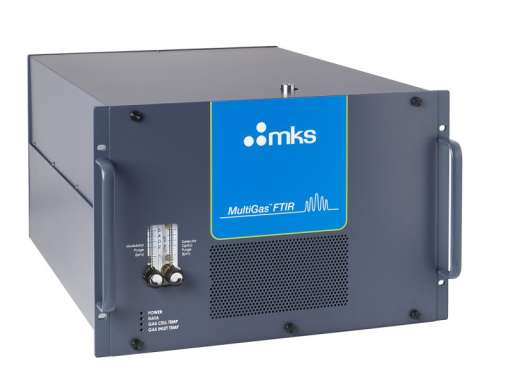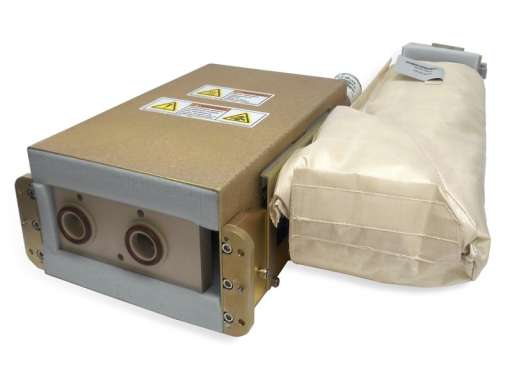FTIR spektrometrar
MultiGas™ 2030 1065-Ready
Engine and vehicle emissions gas analyser
The MultiGas™ 2030 1065-Ready FTIR analyzer combined with the new Engine and Vehicle Application Package was designed to meet Euro VI/Euro 6 and EPA 40 CFR part 1065/1066 requirements for exhaust emission compliance testing. The MKS FTIR analyzer is the worldwide choice for R&D development and certification test labs for light duty (LD) and heavy duty (HD) vehicle and engines as well as catalyst manufacturers.
Different fuel source exhaust emissions are supported not only for raw exhaust measurements but anywhere along the exhaust train.
Key features
- Meets Euro VI and EPA 40 CFR part 1065/1066 requirements
- 5 Hz data acquisition and analysis for fast transient monitoring
- Capable of true 5Hz sampling rates
- High resolution (0.5 cm-1) FTIR reduces interferences from water and CO2, for unbiased, accurate readings
- Gas cell designed for lowest residence time for “sticky” gases and high temperature resistant insulation
- Low volume (200 mL), long path (5.11m) gas cell produces fast response time without compromising detection limits
Applications
- Stack monitoring (environmental compliance)
- Process monitoring, development and optimization
- Ambient air analysis (industrial hygiene)
- Bulk gas purity analysis
- Combustion emissions monitoring
- SCR – selective catalytic reduction performance monitoring
2102 Process FTIR Spectrometer
The MultiGas 2030 Analyzer is composed of a 2102 Process FTIR Spectrometer, our patented, high-optical-throughput sampling cell, applications-specific analysis software, and an instrument independent quantitative spectral library. The 2102 Process FTIR Spectrometer is compact and rugged. Capable of operating at spectral resolutions up to 0.5 cm-1, it is the fastest, most sensitive and stable process FTIR available. In addition, it can operate in hostile environments with a high degree of immunity to vibration and temperature changes. An advanced, high-speed data processing system is standard, and provides low-noise infrared spectra for analysis.
Multi-pass Gas Cell
This spectrometer is coupled to a patented low volume (200 mL) multi-pass gas cell with a 5.11 meter effective pathlength. The patented design of this cell incorporates aspheric, aberration-correcting mirrors which provide more than twice the optical throughput of a conventional multipass gas cell. Alternatively, a single-pass gas cell can be used for corrosive gases or strongly-absorbing gases at high concentrations. Either cell can be operated from ambient temperature to 191°C.
Spectral Analysis
The MultiGas 2030 analyzer features robust quantitative analysis software, which can analyze and report concentrations for dozens of compounds simultaneously. The software, which operates on a personal computer, performs automatic corrections for gas temperature and pressure variations, which are measured directly by the analyzer. Samples can be acquired and analyzed in less than a second, making transient analysis possible.
During data collection the MultiGas software continuously acquires and processes spectra while computing the concentrations of the gases that are selected in the setup. Display formats include concentration histories in graphical and tabular formats, the measured spectrum and spectral residuals. The residual spectrum can be utilized to visually determine error in the analysis, making QA/QC checking easy and straight forward to accomplish. The spectral residuals represent the “left-over” spectral information once all the reference spectra have been accounted for. Once spectra have been collected and saved, these spectra may be reprocessed at any time using the same or different calibration sets.
Instrument Independent Calibration
The MultiGas software features multi-point calibration curves that provide a dynamic range up to 9 orders of magnitude (ppb to 100%). Calibrations for many species are provided with the instrument, and additional calibrations can be generated by the user from gases of known concentration. Utilities in the MultiGas software verify the performance of each instrument, which allows a calibration generated on one MultiGas to be used on any other MultiGas without alteration.



